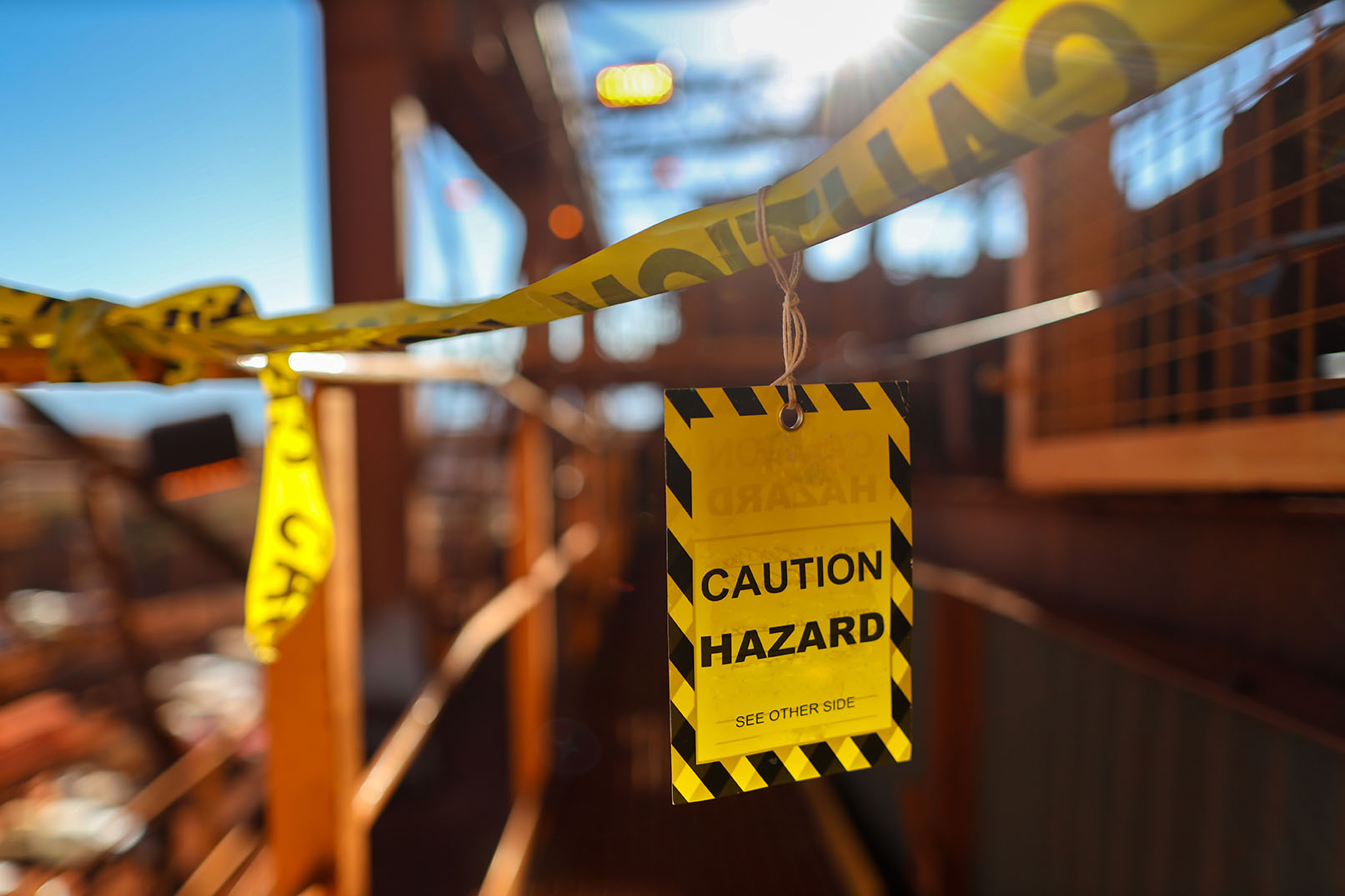

A hazard is something that can cause harm. There are many different types of hazards, including physical hazards, chemical hazards, and biological hazards.
Physical hazards are things that can cause physical injury, such as sharp objects, hot surfaces, and falling objects. Chemical hazards are things that can cause harm if they are swallowed, inhaled, or touched, such as cleaning products, pesticides, and gasoline. Biological hazards are things that can cause harm if they are ingested, such as bacteria, viruses, and parasites.
It is important to be aware of hazards and to take steps to avoid them. For example, you can avoid physical hazards by being careful when you are using sharp objects or working with hot surfaces. You can avoid chemical hazards by reading the labels on cleaning products and pesticides before you use them. And you can avoid biological hazards by washing your hands frequently and cooking food thoroughly.
The workers were exposed to hazardous chemicals.

Noun: hazard.
Adjective: hazardous.
Adverb: hazardously.
Verb: hazard.
The word "hazard" comes from the Old French word "hasard", which means "chance" or "risk". The word is thought to be derived from the Arabic word "zahr", which also means "chance" or "risk".
What might be identified as a hazard in a science lab?